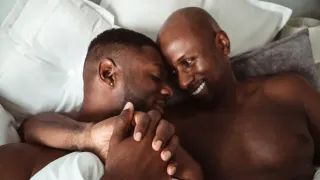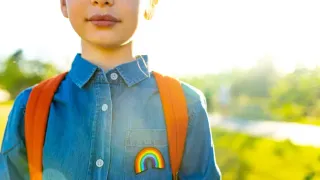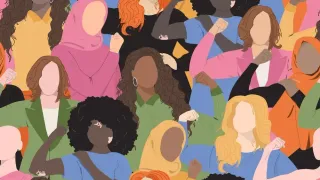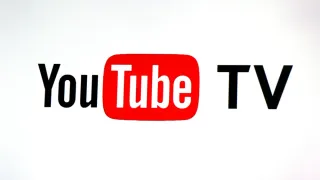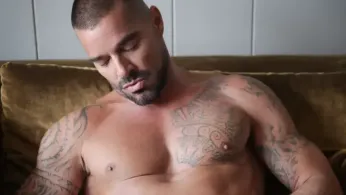
4 hours ago
Ricky Martin Sounds the Alarm: Why Are Queer People Feeling Forced Back Into the Closet?
READ TIME: 4 MIN.
Ricky Martin, the Grammy-winning pop icon and one of the world’s most recognizable LGBTQ+ celebrities, has never been shy about using his platform to advocate for queer visibility. But his latest warning is hitting home for many: according to Martin, gay men—and by extension, the entire LGBTQ+ community—are once again feeling pressured to hide who they are, facing an environment that eerily echoes the oppressive climate of the 1960s .
“I feel like we’re dealing with the same fears as the ‘60s,” Martin said, reflecting on the growing unease queer people are experiencing amidst a spike in anti-LGBTQ+ rhetoric, legislation, and violence across the globe . For a generation raised on the promise that ‘It Gets Better,’ Martin’s comments are both sobering and galvanizing.
Martin’s warning isn’t just a gut feeling—it’s reflected in the numbers and headlines. In the United States alone, 2023 saw a record number of anti-LGBTQ+ bills introduced in state legislatures, with many targeting transgender people’s access to healthcare, school sports, and public spaces . In countries like Uganda, draconian anti-LGBTQ+ laws have been enacted, criminalizing queer existence and emboldening violence . Even in supposedly progressive nations, hate crimes against LGBTQ+ people have risen, and queer spaces are reporting increased incidents of harassment and intimidation .
The sense of regression isn’t just legislative—it’s cultural. Social media platforms, once celebrated for connecting queer communities, are now hotbeds of targeted harassment, coordinated disinformation campaigns, and algorithmic censorship . The result: many queer people are finding their online and offline worlds shrinking, forced into self-protection and, in some cases, back into the proverbial closet.
Martin’s own journey is emblematic of the high-wire act many queer people perform between visibility and safety. When he came out publicly in 2010, it was a seismic moment for LGBTQ+ representation in mainstream Latin music and international pop culture . But it came with a price. Martin has spoken candidly about the “trauma” of being closeted and the persistent anxiety even after coming out: “You feel the weight of the world on your shoulders,” he recalled, describing the isolation that comes from hiding one’s truth .
Now, Martin is witnessing a new generation grappling with the same dilemma. “We’re having to hide again,” he warns, “and that’s not okay.” . The stakes are especially high for young queer people, who may feel emboldened to be themselves online but face real-world repercussions at school, home, or work.
In the age of performative allyship and pinkwashing, authentic voices like Martin’s cut through the noise. He’s not just relaying personal fears—he’s amplifying those of a community that’s weathered decades of progress and backlash . Martin’s comments are a reminder that visibility, while vital, is not a panacea. “We need to keep celebrating, keep loving, and keep fighting,” he insists—because joy itself can be an act of resistance .
The queer community has always excelled at transforming adversity into art, activism, and chosen family. From the Stonewall riots to the ballroom scene, visibility has been hard-won, never guaranteed. That’s why Martin’s warning resonates: it’s a call to defend our hard-fought spaces and to support one another when the world feels hostile.
The fear Martin describes isn’t just a relic of the past—it’s written into the DNA of queer culture. The coded language of camp, the sanctuary of gay bars, the secret signals of fashion and music—all originated as responses to the necessity of hiding, of surviving in a hostile world . Even today’s most mainstream queer art forms, from RuPaul’s Drag Race to Pose, are rooted in histories of subversion and self-preservation.
Martin’s invocation of the 1960s isn’t nostalgia—it’s a warning. The post-Stonewall era brought unprecedented visibility, but also new dangers. As queer people became more publicly recognized, backlash intensified. The AIDS crisis, the culture wars of the 1980s, and the ongoing battles over trans rights have all shown that progress is never linear .
So where do we go from here? Martin’s call isn’t just a lament—it’s a challenge. “We must never stop loving,” he urges, emphasizing that queer joy is not naïve, but radical . Community organizations, Pride celebrations, and queer art are all forms of resistance, reminding us that solidarity is our greatest weapon against fear.
In 2025, queer people are more visible than ever, but visibility alone doesn’t guarantee safety. From allyship to activism, every gesture counts. Martin’s words are a prompt: check in on your friends, support local LGBTQ+ initiatives, speak up when you see injustice. And don’t forget to dance, laugh, and celebrate—because queer joy is political, and visibility is powerful, but love is revolutionary.
Ricky Martin’s warning is a wake-up call for our times. If queer people are feeling forced back into the closet, it’s up to all of us—celebrities, activists, allies, and everyday community members—to push back. We’ve inherited a legacy of resilience, creativity, and radical love. The closet may beckon, but we know how to build doors, windows, and whole new worlds.
As Martin reminds us: “We’ve come so far, but we can’t go backwards.” The fight continues, the joy persists, and the closet—however formidable—will never contain the full spectrum of queer brilliance.

